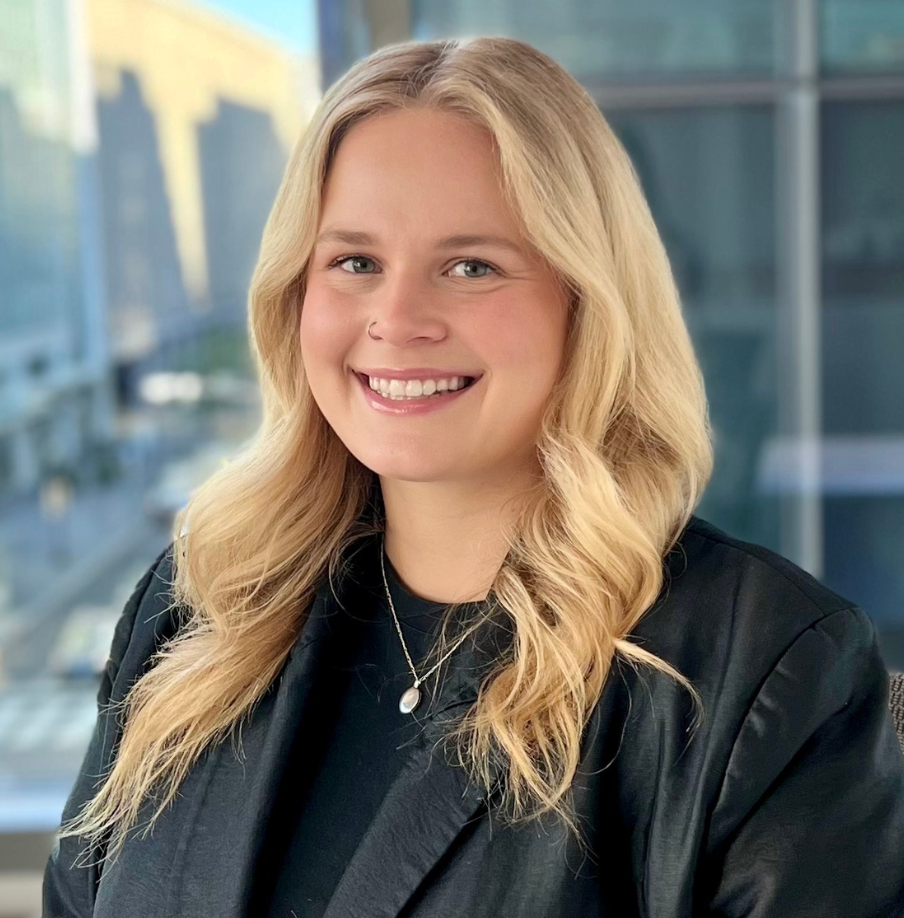Charles Aris Q&A: How to make the most of your next career fair

It’s time to put your thinking cap on and gain timely insights from Charles Aris Salesforce and Zoom lead Brent Anthony, who discussed all things career fairs with senior marketing associate Sydney Olszewski:
Sydney: Colleges all around the United States host career fairs each semester – and yet not all students attend. Why is it beneficial for students to participate in their school’s career fairs? At what point in your college career should you start making these events a priority?
Brent: You should visit career fairs as early as you can and as often as you can. There is no substitute for the experience of connecting – in real time, face to face – with representatives of employers. You can’t do that if you’re not present. It’s better to get the nervousness and jitters out as a freshman or sophomore than when time is growing short as a senior. If you want to make a great impression, you need practice on how to do just that – which is one of the most beneficial reasons to attend outside of getting a job!
Sydney: I imagine students should avoid just showing up on the day of the career fair without any preparation. What should they do to ensure they’re ready?
Brent: The worst impression you can make on a representative at a career fair is to show up unprepared. Make yourself a checklist and ensure that every box is checked a day or two ahead of the fair.
- Attire: Choose your outfit, shoes and any accessories ahead of time. Consider: Does this ensemble represent me in the way I want to be perceived? Dress for the job you want, not the one that you have. I promise the representative will be more receptive.
- Résumé: If you haven’t already written a résumé, now’s the time. It should include your full name, permanent address, email and phone number. List any internships, volunteer work and job experience that you have to date. Include two or three bullets about what you accomplished at each. Also include any accomplishments which make you stand out from the crowd (organizational president, dean’s list, etc.). If your GPA is greater than 3.0, include that as well. Look at the list of organizations attending the event and print off five to 10 more résumés than the number you plan to meet.
- Research: Do your research on the organizations you aim to visit. Showing that you’ve done your homework is the best way to stand out to an organization’s representative. At Charles Aris Inc., we assert that you’re judged just as much by the quality of questions you ask as by your answers to questions asked of you. Learn to speak knowledgeably about participating organizations; that will help you develop questions to ask their representatives.
- Elevator pitch: Prepare a 30-second pitch and practice it until you’re comfortable delivering it. Include the information that best describes who you are as a person and as a professional. What are the most important things about you? Imagine you’ve stepped onto an elevator with Bill Gates, Indra Nooyi, Jeff Bezos or another ubersuccessful executive. What about you would they find most impressive? Align this pitch with your résumé, covering your greatest accomplishments.
- Sleep: Lastly, get plenty of sleep the night before the career fair. Every rep you speak with is interviewing you in some way, so do yourself a favor and get a good night’s rest. You’ll function far more effectively as a result.
Sydney: How should students navigate a career fair? What sorts of booths should they target? How much time should they spend at each?
Brent: Navigating a career fair can be daunting. There are many booths, even more people, and constant rumblings of conversation. If you aren’t prepared, you might find yourself floating from one booth to the next with no results. Most career centers publish the list of organizations attending the fair on the college’s website or on its student job board, so take the time to research those in attendance and create a navigation plan. Allow three to five minutes for each stop, adjusting on the fly if any particular conversation goes exceedingly well.
Keep an open mind as you determine the organizations you’ll visit. Feel free to stop at any booth that seems interesting and simply introduce yourself if nothing else. Remember, practice makes perfect. Consider this: Fewer than one-third of all college graduates land a job directly related to their major, so it never hurts to learn about as many organizations as possible. Simply because you think that you want to work in a certain industry doesn’t mean that’s where you’ll necessarily end up.
That said, target organizations which do operate in your chosen industry and seek out all of them at the career fair. If there are employers you absolutely want to speak with, go to them first. Some booths get so overloaded with students that their reps can’t speak to everyone before the event ends. Don’t be one of those students! Get there early so you don’t miss out.
Sydney: It’s normal to feel nervous about talking to potential employers at these events. What should a student be sure to say and do when speaking with a rep at their booth?
Brent: While it is normal to be nervous at career fairs, you don’t need to be. An organization’s representatives are just as human as you are. We’re coming to visit you, so we want you to be at ease as we get to know each other.
When you approach a booth, give the professional a hearty handshake and a smile. You’ll give the impression of confidence just by doing that! Introduce yourself with an elevator pitch and show genuine interest in the organization by asking questions to learn more. Most of all, though, be present in the conversation. Be attentive and don’t let your mind or eyes wander while you’re talking to the individual. Give reps the attention they deserve, as this is your opportunity to impress the people who could one day hire you!
Finally, offer the representative your résumé and ask for that professional’s business card. Ask whether there are any openings in particular and whether the organization is accepting applications in general. If so, ask how to apply so you can follow up appropriately after the fair.
Sydney: Speaking of … what follow-up techniques would you recommend for students who are interested in continuing the conversation?
Brent: Great question. After the career fair, you should evaluate the organizations whose reps you met and reach out to them via phone, email or LinkedIn – or any combination thereof. The thank-you note is an often overlooked but important part of the process. The goal of any student attending a career fair should be to leave positive impressions throughout the room. A brief, well-constructed thank-you note sent via email is a great way to make yourself memorable. Send this note no later than 24 hours after meeting the rep.
Sydney: As the face of internal recruiting for an executive search firm, what experience and skills do you seek on behalf of Charles Aris?
Brent: I’m glad you asked. Charles Aris is always seeking talented individuals with an entrepreneurial spirit. We invest in our team members’ growth and offer the tools and operational support to be incredibly successful, regardless of one’s major.
The ideal individual for our organization is open to having a conversation with anyone at any time; is intellectually curious; is willing to invest the time to become a student of our business; and is hungry to succeed and sustain that success as she learns and develops. I look forward to sharing more with students in person!
The Charles Aris team attends career fairs at colleges across central North Carolina. Interested in an internship or full-time role with us? View our internship page and career opportunities, and be sure to stop by our booth at your school’s fair. For more information, give Brent Anthony a call at 336-378-1818, extension 9126, or send a copy of your résumé to brent.anthony@charlesaris.com.
SIMILAR ARTICLES
Meaningful conversations: How our deal-sourcing team connects with founders
We launched our transaction services business with the guiding philosophy that meaningful conversations lead to successful deals.
The new era of workplace wellness at Charles Aris
Throughout the past year, we’ve also integrated firmwide activities into our culture to promote healthy meditation, social events and exercise.
Charles Aris in the community
Our firm places a high value on giving back to our communities, and our team members have been working alongside several organizations to do so.



